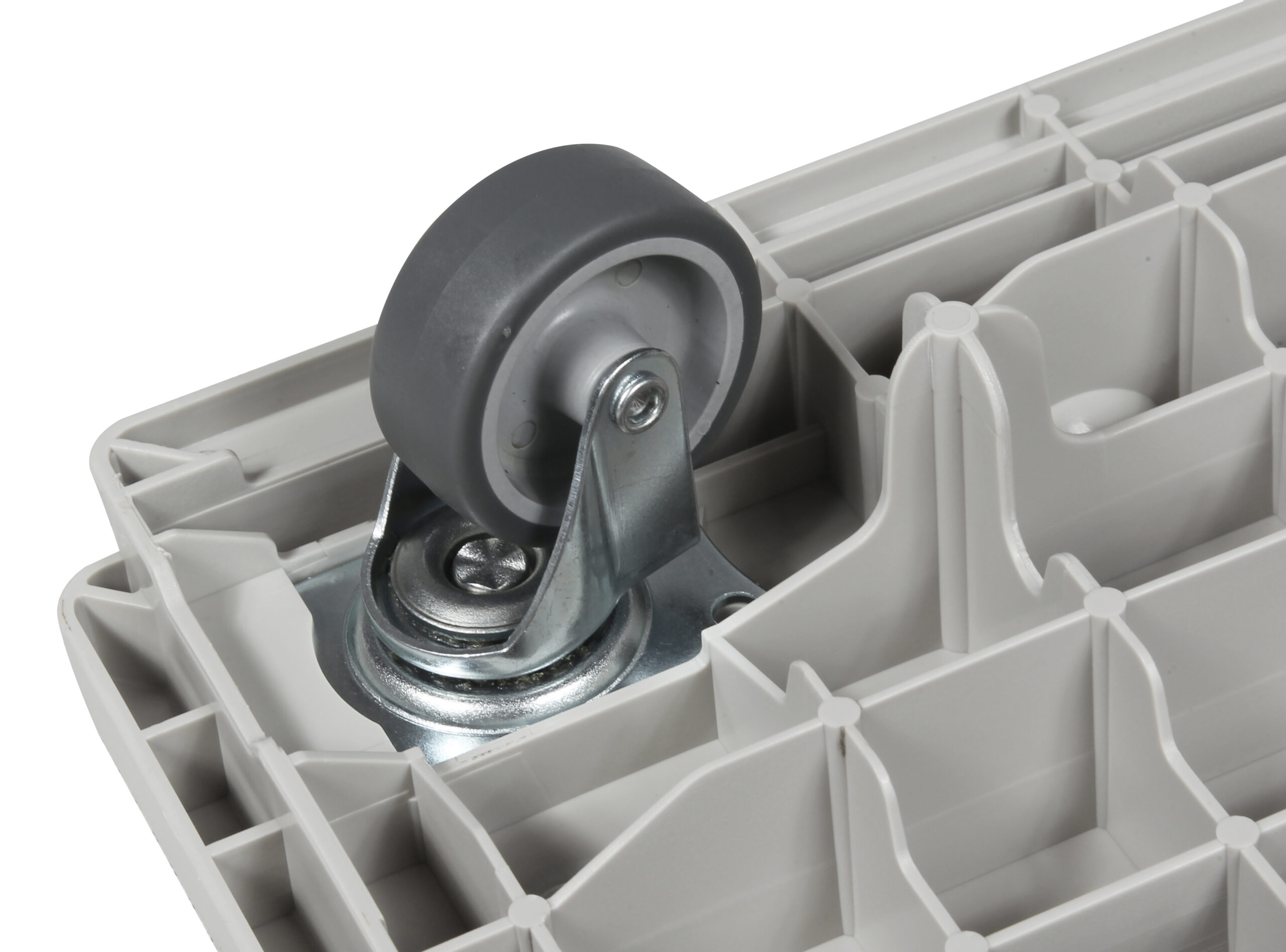Robust Casters and Wheels for Manufacturing and Warehousing
Heavy-duty casters and wheels are indispensable equipment in factories, warehouses, and other industrial settings, engineered to bear and transport hefty loads. Their core strength lies in their exceptional load-bearing capacity, typically categorized into the following tiers:
Medium-Duty Casters
With a load capacity ranging from 450 to 5,000 pounds, medium-duty casters are well-suited for general factory and warehouse environments. Common materials include cast iron, semi-steel, and polyurethane.
Cast iron casters offer cost-effectiveness and remarkable durability, though relatively heavy. Semi-steel wheels strike a balance between weight and strength. Polyurethane wheels, albeit with slightly lower load capacity, boast excellent wear resistance, corrosion resistance, and shock absorption properties.
Extra-Heavy-Duty Casters
Designed to handle extremely heavy loads ranging from 1,600 to 20,000 pounds, extra-heavy-duty casters often feature a dual-wheel design, providing maximum load capacity with minimal overall height.
Commonly crafted from cast steel and cast iron, these casters can withstand harsh environments involving high temperatures, chemicals, and metal debris. Some extra-heavy-duty casters also incorporate V-groove wheels for rail guidance, reducing rolling resistance.
Super-Heavy-Duty Casters
At the pinnacle of heavy-duty casters, super-heavy-duty models can support loads exceeding 50,000 pounds, primarily used in ultra-heavy industries like steel and shipbuilding. Typically constructed from cast steel or forged steel, these casters often employ dual-wheel or quad-wheel designs to ensure sufficient load capacity and stability.
In addition to their outstanding load-bearing performance, super-heavy-duty casters exhibit exceptional wear resistance, impact resistance, and corrosion resistance, enabling long-term use in harsh environments. Some models even feature braking systems for enhanced operational safety.
Whether medium-duty or extra-heavy-duty, casters play a vital role in factory and warehouse logistics. Selecting and using the appropriate heavy-duty casters can significantly improve work efficiency, reduce labor costs, and ensure the safe transportation of goods.
Stainless Steel Casters for Food Processing and Pharmaceutical Industries
In environments with stringent hygiene requirements, such as food processing, pharmaceuticals, and biological laboratories, stainless steel casters are essential equipment. They offer the following unique advantages:
Superior Corrosion Resistance
Stainless steel inherently possesses excellent corrosion resistance, effectively preventing corrosion caused by chemicals, moisture, salts, and other factors. This characteristic is crucial in environments that require frequent cleaning and disinfection.
High Heat Resistance and Waterproofing
In addition to corrosion resistance, stainless steel casters also exhibit heat resistance and waterproofing properties, enabling their long-term use in humid, high-temperature environments and meeting various demanding conditions.
Seamless and Smooth Design
To meet sterile and easy-to-clean requirements, stainless steel casters typically feature a seamless design with smooth surfaces, free of crevices, facilitating thorough cleaning and disinfection.
Exceptional Chemical Stability
Some stainless steel casters incorporate phenolic resin wheels, which offer superior chemical stability, enabling them to withstand various corrosive chemicals. This feature makes them highly suitable for laboratory environments.
While more expensive, stainless steel casters are the ideal choice for environments with stringent hygiene and cleanliness requirements. Using stainless steel casters can effectively prevent the spread of contamination, ensuring product and environmental safety.
Shock-Absorbing Casters for Sensitive Equipment and Electronics
Shock-absorbing and vibration-damping casters are the perfect choice for precision instruments and equipment, minimizing the impact of vibrations on their operation. Their primary applications include:
Precision Measurement Instruments
Highly sensitive measurement instruments, such as Atomic Force Microscopes (AFM) and Scanning Probe Microscopes (SPM), are extremely susceptible to vibrations. Using shock-absorbing casters effectively blocks vibrations from the ground, ensuring accurate measurement data.
Precision Manufacturing Equipment
In industries like semiconductor manufacturing and precision machining, even minor vibrations can lead to processing errors. Therefore, these equipment must be installed on shock-absorbing casters to isolate external vibrations.
Laboratory Instruments
Instruments in biological, chemical, and medical laboratories are also highly sensitive to vibrations. Shock-absorbing casters create a stable working environment for these instruments, preventing interference with experimental data.
Shock-absorbing and vibration-damping casters operate on two main principles:
Air Suspension
By introducing compressed air into the caster’s interior, the wheels achieve a “floating” state, enabling low-frequency vibration isolation and effectively blocking ground vibrations.
Flexible Materials
Casters made from soft materials like polyurethane and solid rubber exhibit excellent shock absorption and cushioning properties. Additionally, pneumatic casters achieve a cushioning effect through inflation, making them suitable for use on uneven surfaces.
For precision instruments highly sensitive to vibrations, shock-absorbing and vibration-damping casters are essential components. They create a stable and secure working environment for instruments, ensuring accuracy in experiments and production processes.





